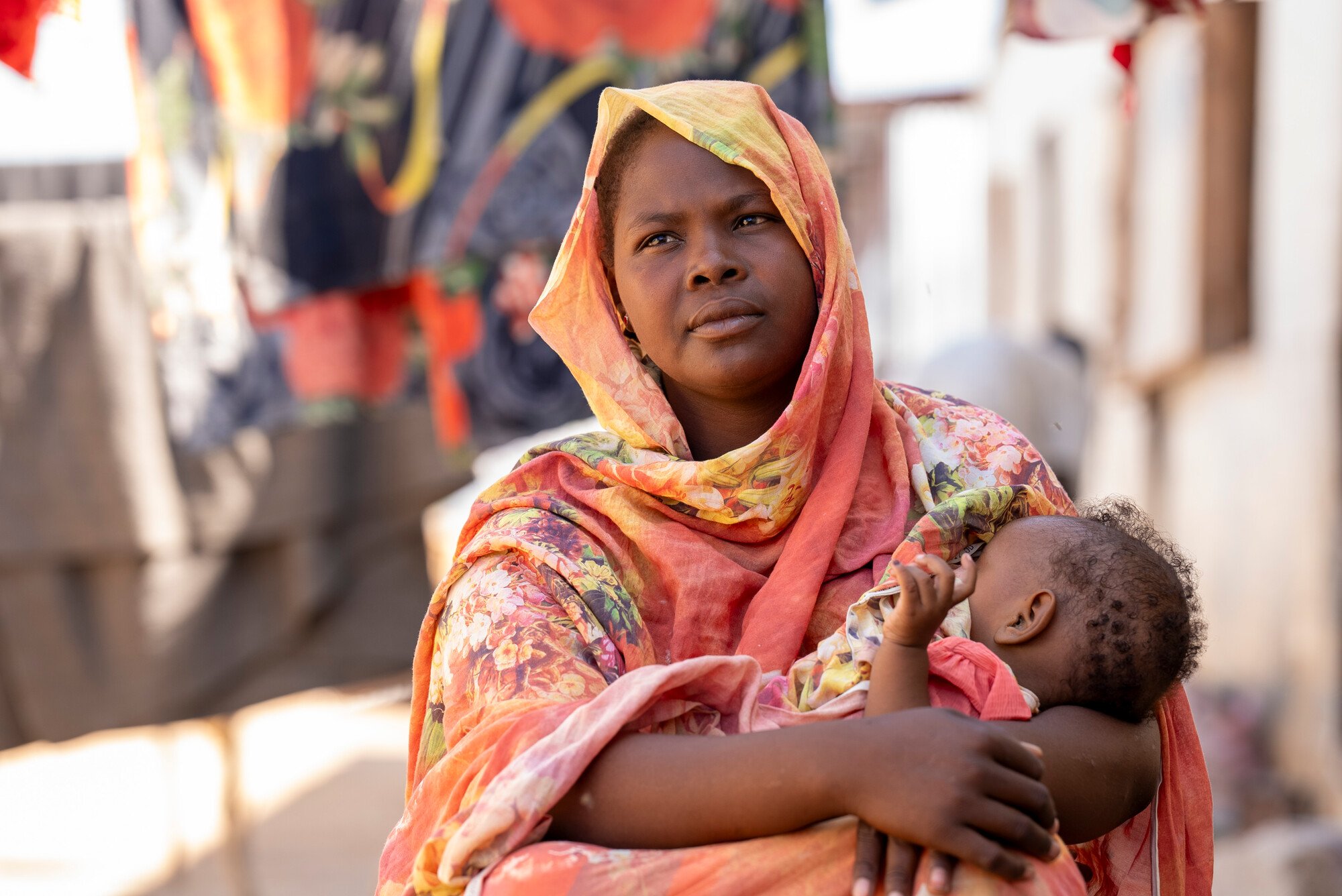Salma lost everything in an earthquake in 2018; with a lot of hard work and a few helping hands, she’s able to support her family again.
The earthquake that struck the Indonesian island of Sulawesi in September 2018 toppled hundreds of homes in the village of Batu Suya. One of them belonged to Salma, the mother of three children, who lost her house and shop in one fell blow. But a year later, her home is a cheerful place. On a hot day in July, twenty friends and relatives gather around to watch as she welcomes out-of-town guests into the open-air shop at the entrance to her new house, and the mood is festive.
There are eggs for sale, and bananas, limes, tomatoes, garlic, and coconut oil. Strips of powdered-drink packets swing in the breeze, doing double duty as advertisements and shade from the blistering sun. Salma has been up since 2:00 AM, which is when she starts cooking breakfast. (Like many people here, she goes by one name.) She makes coffee, yellow rice, and putu, a sticky rice dish with coconut she serves with a fish dip on the side—all ready for opening time at 6:00. When breakfast is over, she fries up tofu, bananas, and cassava, and cooks a noodle dish to serve as snacks and an early lunch. At noon, she closes.
Jobs are hard to come by in this area, and her husband is unemployed, so Salma’s shop is the sole source of income for her family of five. It was savings from her business that enabled her to rebuild, but Oxfam and our local partner consortium JMK (the Humanitarian Knowledge Hub) lent a hand by providing a small cash grant—like those we gave to more than 3,500 people in Batu Suya and surrounding towns. Why cash? Because when families are recovering from disasters, they have a variety of pressing needs, and only they know which are the most important. One might need to focus on school and medical expenses while the top priority for another is fixing the roof or getting seeds in the ground. Salma bought some household items with the cash but invested the rest in her business, buying tools and ingredients she needs for cooking.
Asked about her hopes and plans for the future, Salma has a modest answer: one day she’d like to add white rice to the menu. But before we leave she shares with us the bigger dream that fuels her hard work: “I want my children to go to university and get a proper education.” Surrounded by the fruits of her labor and her crowd of well-wishers, it is hard to imagine she won’t succeed.
All of Oxfam’s programs in the aftermath of the Sulawesi disasters of September 2018—the earthquake and the floods and liquefaction that followed—were carried out in close partnership with the Humanitarian Knowledge Hub, or JMK, which is a consortium of 23 Indonesian organizations. The Indonesian government took steps in this emergency to ensure that local and national NGOs played central roles in the response, and international NGOs provided support only at their request—an approach that aligned well with our own commitment to local humanitarian leadership. We operated as “JMK-Oxfam,” sharing work, planning, skills, and information to ensure a swift response that was grounded in local knowledge and networks. Together we reached more than 195,000 people with assistance; we distributed hygiene kits widely, and homed in on certain hard-hit communities for more complex interventions, like installing and repairing water systems and distributing cash.




